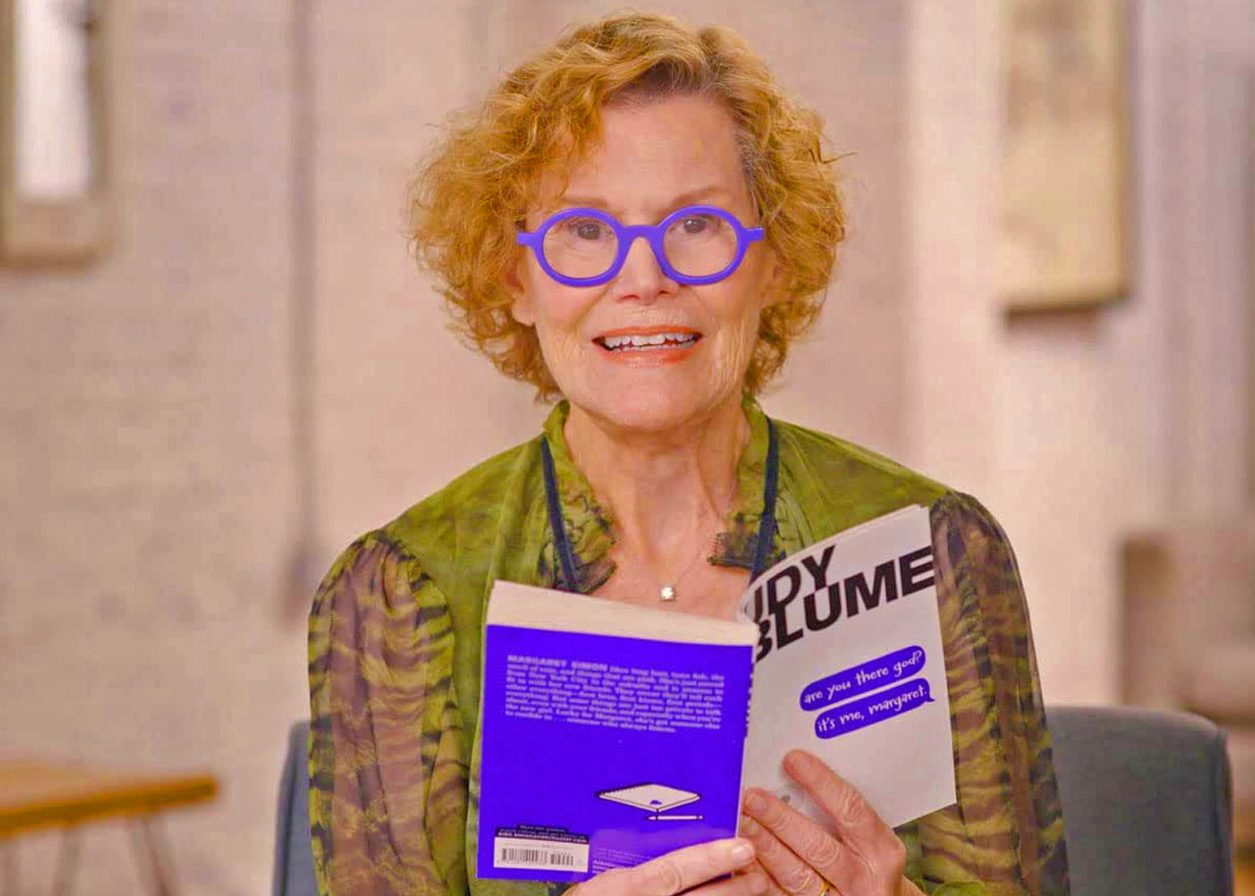When you’re a kid, you’re usually bombarded with all sorts of books to read of all types. So many in fact, that very few stick with you, except the greats. Like in my case, Tales of a Fourth Grade Nothing by Judy Blume (it certainly helped the protagonist was named Peter, like me). The more books I read from the talented writer the more impressed I got, because quite simply, no one wrote like Judy Blume did for kids. Amazon’s doc, Judy Blume Forever, goes the Won’t You Be My Neighbor? route, showing how many “me”s there were who loved Judy’s writing so much that it inspired them, even to this day.
Judy Blume Forever plays almost like a directors commentary of a movie, where the luminous Judy takes us through her own book writing history to provide context for who she was when and where she wrote her stories. We get insights into the person behind Margaret, Fudge, Blubber, and a host of other famous characters, and treated to where her inspiration for them came from. With Judy’s photographic memory in tow, and her constant presence culturally on talk shows and such, the movie also presents Judy’s writing in context. There are eerie parallels to the 1980’s and today, where a more conservative political administration went after Judy’s books and their progressive attitudes towards sex, female empowerment, and language, attempting to ban everything she wrote on moral grounds. And it true Blume fashion, she found her own way to fight for the right of kids to learn, such as by opening her own bookstore and carrying banned books. Judy’s participation certainly provides a nice added oomph to Judy Blume Forever, but it does also keep maybe the less savory parts of Judy’s life from being explored: her first husband and kids are barely mentioned and barely show up in the doc, despite Judy insisting on their importance to her life, a strange juxtaposition maybe worth exploring.
And maybe that’s because generally, the overwhelming good Judy Blume brought to the world outshines the bad. Various famous people (Lena Dunham, Samantha Bee, Molly Ringwald) openly talk about how one of Judy’s books completely changed their lives, and made them seen as people for the first time. Judy’s stories were so good at connecting with kids growing up that many of them actually wrote to Judy directly, because she was easier to open up to than parents or friends out of fear of embarrassment. I definitely teared up a couple times as we see these women like author Mary Choi slowly grow up conversing with Judy, allowing them to be open about who they are as people and get through some hard times they might be going through (at one point, Judy helps stop a girl from committing suicide through correspondence). Combine all of this together, and there’s a reason Blume had lines out the door at every book signing, or fans bursting into bumbling messes when they meet her; Judy dared to be radically open and honest about her feelings growing up, feelings every person goes through, and gives people comfort when they are going through those same feelings that they are not weird or strange in any way.
As a former fourth grade nothing, I thank you Judy Blume. You helped me deal with the Fudge’s in my life. And thank you for helping the Margaret’s, Blubbers, and high school Forever… couples as we all tried to figure out who we were growing up. And perhaps the best part of it all was seeing 11 year olds today loving those same stories I loved 20 years ago. Judy Blume is forever, and we’re all the better for it.

